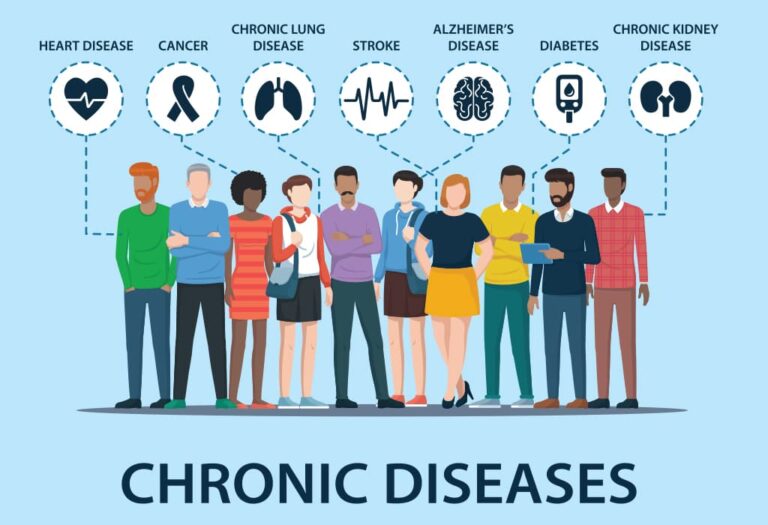Abdominal Pain, What’s Causing It and Treatment
Author: Giselle Robel
Giselle Robel
Category: Health
Abdominal pain is pain that occurs between the chest and pelvic regions. It can also be crampy, achy, dull, intermittent, or sharp. discomfort also called a stomachache.

Inflammation or diseases that affect the organs in the abdomen can cause abdominal pain. And major organs located in the abdomen include:
- intestines (small and large)
- kidneys
- appendix (a part of the large intestine)
- spleen
- stomach
- gallbladder
- liver
- pancreas
Viral, bacterial, or parasitic infections that affect the stomach and intestines may also cause significant abdominal pain.
Types of Abdominal Pain
There are several types of abdominal pain, which are based on how quickly your pain starts and how long it lasts for example:
- Acute pain starts over a few hours or days and may come with other symptoms.
- Chronic pain lasts longer — from weeks to months or more — and may come and go.
- Progressive pain gets worse over time and often comes with other symptoms.
Abdominal Pain Causes
Whether you’ve got a mild ache or serious cramps, abdominal pain can have many causes. For instance, you might have indigestion, constipation, a stomach virus, or, if you’re a woman, menstrual cramps.
Other possible causes include:
- Irritable bowel syndrome (IBS)
- Crohn’s disease or ulcerative colitis
- Food poisoning
- Food allergies
- Gas
- Urinary tract infection
- Abdominal muscle strain or pull
You may also get abdominal pain if you’re lactose intolerant or have ulcers or pelvic inflammatory disease. Other causes include:
- Hernia
- Gallstones
- Kidney stones
- Endometriosis
- Gastroesophageal reflux disease (GERD)
- Appendicitis
- Diverticulitis
- Abdominal aortic aneurysm (swelling in the belly's main artery)
- Bowel blockage or obstruction
- Cancer of the stomach, pancreas, liver, bile duct, gallbladder, or immune cells
- Ovarian cancer or cysts
- Pancreatitis (inflammation of the pancreas)
- Cholecystitis (inflammation of the gallbladder)
- Low blood flow to your intestines caused by a blocked blood vessel
- Ectopic pregnancy (when a fertilized eggs grows outside the uterus, for example, in a Fallopian tube)
When to Call the Doctor About Abdominal Pain
If your abdominal pain is serious, doesn’t go away, or keeps coming back, talk to your doctor. Or call for help right away if your belly hurts because you had a recent injury, there or if you have any chest pain.
You should also contact your doctor as soon as you can if you have symptoms along with the pain, such as:
- Fever
- Can’t keep food down for more than 2 days
- There’s signs you’re getting dehydrated, including not urinating frequently, dark-colored urine, and being very thirsty
- Can’t have a bowel movement, especially if you’re also vomiting
- Pain when you pee, or you need to urinate often
Location of pain within the abdomen

The location of the pain within the abdomen may be a clue as to its cause.
Pain that's generalized throughout the abdomen (not in one specific area) may indicate:
- appendicitis (inflammation of the appendix)
- Crohn's disease
- traumatic injury
- irritable bowel syndrome
- urinary tract infection
- the flu
Pain that's focused in the lower abdomen may indicate:
- appendicitis
- intestinal obstruction
- ectopic pregnancy (a pregnancy that occurs outside the womb)
Additionally, in women, pain in the reproductive organs of the lower abdomen can be caused by:
- severe menstrual pain (called dysmenorrhea)
- ovarian cysts
- miscarriage
- fibroids
- endometriosis
- pelvic inflammatory disease
- ectopic pregnancy
And also upper abdominal pain may be caused by:
- gallstones
- heart attack
- hepatitis (liver inflammation)
- pneumonia
In addition to that pain in the center of the abdomen might be from:
- appendicitis
- gastroenteritis
- injury
- uremia (buildup of waste products in your blood)
Lower left abdominal pain may be caused by:
- Crohn's disease
- cancer
- kidney infection
- ovarian cysts
- appendicitis
Upper left abdominal pain is sometimes caused by:
- enlarged spleen
- fecal impaction (hardened stool that can't be eliminated)
- injury
- kidney infection
- heart attack
- cancer
Causes of lower right abdominal pain include:
- appendicitis
- hernia (when an organ protrudes through a weak spot in the abdominal muscles)
- kidney infection
- cancer
- flu
Upper right abdominal pain may be from:
- hepatitis
- injury
- pneumonia
- appendicitis
Abdominal Pain Diagnosis
Since there are so many possible causes, your doctor will do a thorough physical exam. They'll also ask you some questions about your symptoms and want to know what type of pain you have. For instance, is it a severe stabbing pain or a dull ache?
Some other questions your doctor may ask you:
- Does it hurt throughout your abdomen, or is it just in one particular area?
- When does it hurt? Always? More often in the morning or at night?
- If the pain comes and goes, about how long does it last each time?
- Also, does it hurt after you eat certain foods or drink alcohol?
- Are you in pain during menstruation?
- How long have you been hurting?
- Does the pain sometimes move into your lower back, shoulder, groin, or buttocks?
- Do you take any medications or herbal supplements?
- Are you pregnant?
- Does any activity ease the pain, such as eating or lying on one side?
- Does an activity or position make the pain worse?
- Were you injured recently?
To conclude, after your exam is over and your doctor is asking you questions, you may need tests to help find the cause of your pain. And also these tests may include:
- Stool or urine tests
- Blood tests
- Barium swallows or enemas
- Endoscopy
- X-ray
- Ultrasound
- CT scan
- Colonoscopy or sigmoidoscopy
Abdominal Pain Treatment and Home Remedies
The treatment for abdominal pain depends on its cause, and may include:
- Medications to lower inflammation, prevent acid reflux, or treat ulcers or infection
- Surgery to treat a problem with an organ
Over-the-counter pain relievers like aspirin and ibuprofen can irritate your stomach and worsen your pain. Don't take them unless a doctor has diagnosed the cause of your belly pain and recommends their use.
Moreover, some diet and lifestyle changes may help belly pain caused by gas and indigestion. Here are some things you can try:
- Eat smaller portions at more frequent meals
- Eat slowly
- Chew your food well
- Drink beverages at room temperature
- Avoid foods that give you gas or indigestion
- Manage your stress
- Limit alcohol and caffeine
- Sit up straight after you eat
- Get regular physical activity and take a short walk after you eat
How can I prevent abdominal pain?
Lastly, not all forms of abdominal pain are preventable. However, you can minimize the risk of developing abdominal pain by doing the following:
- Eat a healthy diet.
- Drink water frequently.
- Exercise regularly.
- Eat smaller meals.
If you have an intestinal disorder, such as Crohn's disease, follow the diet your doctor has given you to minimize discomfort. And also if you have GERD, don't eat within 2 hours of bedtime.
Lying down too soon after eating may cause heartburn and abdominal pain. Try waiting at least 2 hours after eating before lying down.













